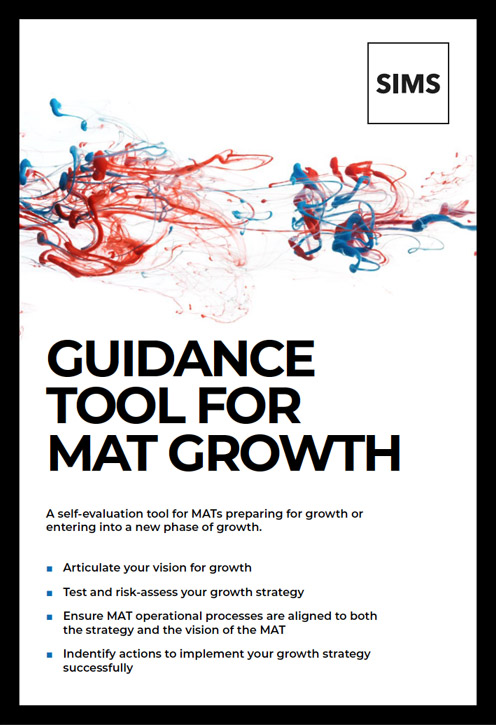With the introduction of performance related pay (PRP), an increase in accountability measures and workload, changes to pension and national insurance, a reduction in funding and the shifting sands of performance tables, it isn’t an understatement to say that the current ‘employment deal’, or in HR terms, the ‘psychological contract’ of the teaching profession has transformed. The psychological contract of economies past i.e. a job for life has gone. The psychological contract of today rewards performance over service and employability over loyalty. Teacher pay is now explicitly linked to performance as opposed to length of service and increasingly includes the ‘justification’ of larger than appropriate salaries.
The effect of these shifts on schools and school improvement is significant. Though school leaders are working to affect positive change in the sector over the long term, the pace of change means that it will take time to feel the impact of this in the corridors of our schools.
Whilst MATs face the same challenges as their maintained counterparts, they are better placed to influence long term sustainable change from the ‘inside out’ whilst at the same time mitigating the effect of the ‘outside in’. Whilst teachers may be disillusioned with their profession, MATs have the ability to shape their employment and working practices to provide schools in which teachers are enabled, supported and excited to teach. MATs should use the freedoms afforded to them to construct, articulate and maintain their own organisational psychological contract.
The psychological contract is the ‘silent partner’ of the employment contract but is different in that it is unwritten and subjective. It is focused around the employee expectations of the employer and how they hold up their end of the ‘employment deal’. These expectations relate to areas such as reward, recognition, development and progression, security, management support, flexibility and work/life balance and autonomy, fair treatment and trust.
The management of the psychological contract is key to positive employment relationships and the facilitation of employee choice in order to improve recruitment and retention.
Here are my 5 top tips on how MATs can assess, communicate and conserve their organisational psychological contracts:
Dig into the data
To improve recruitment and retention, you need to understand the local landscape that your MAT inhabits. Dig into the turnover data so that you can identify the pain points of your MAT. Is it attraction or retention? Is it location or legacy? Is it reputation or competition? Is it strategy or process? Is it money or marketing? Do they feel supported with the sufficient training and development opportunities? Ask staff what it is like to work for your MAT. Find out what keeps them working for you and what stops them applying for other jobs. Also, consider any differences between individual schools. Differences aren’t necessarily a bad thing but understanding them could help you improve the performance of the whole.
Root yourself in your reality
To get a truthful and complete picture of the current psychological contract of your MAT, you need to be objective. Look at your MAT policies, salary scales, performance management processes, benefits, training packages and progression routes. Determine how competitive your employment deal is and how far it goes to meet not only the needs of your MAT but also the expectations of your staff. Consider whether it is reflective of your ethos and culture. Think about what your staff have told you and identify any discrepancies. Identify what you think is going well but in reality, is falling flat and either fix it or get rid of it.
Build trust with consistency
Inconsistency is the death knell of the psychological contract. If any of your leaders operate in a way contrary to your MAT mission, vision and values it will be observed. From the moment that staff join your MAT, they are constantly yet often unconsciously assessing whether leaders do what they say they will, honour the promises they make, lead by example and apply policy fairly and consistently. Consistency of behaviours throughout all layers of the MAT is just as important as consistency of policy. External influences may be driving change and you may need to do things you don’t want to do but when it comes down to it, you and your staff are on the same side. Your staff need to trust that you will do your absolute best to treat them fairly and if for any reason you can’t and a promise needs to be broken, that not only you will be honest but that you will be supportive.
You don’t need to be better, just be different
Before you recruit, invest time in job design. When recruitment goes wrong, it tends to be before it has begun so don’t just dust off the old job description, person specification and advert. It’s in job design that the psychological contract is constructed so do it consciously and creatively. It’s where you can not only plan for the future but also evaluate the present and learn from the past. Reflect upon where the role fits in your structure and whether it’s an attractive and do-able job. Each role has its perks and its quirks so be up front and where you can, balance them out. Don’t just do this at school level either, look across your MAT in terms of opportunity and progression. Remember, progression doesn’t have to mean ‘upwards’. If you can define progression differently in your MAT, you can expand your talent pool and your organisational capacity.
Get performance management right
In your MAT, this process is where the psychological contract is at its most vulnerable. It’s the only process aside from management that spans all the employee expectations we covered earlier; reward, recognition, development, progression, fair treatment, autonomy and trust. It shouldn’t facilitate under the table budget cuts, nor should it be a capability process in disguise. It should be a process in its own right. Some see performance related pay as an accountability measure but within your MAT it should be about development, capacity building and improving the quality of teaching i.e. a force for good rather than a blunt instrument of punishment. This way, not only will you get more from your staff, they will be more than happy to give. As a MAT, the training and development of your central and leadership teams is just as crucial as they will need to be both competent and confident using the systems and processes your MAT puts in place to monitor school performance and implement successful school improvement strategies.
As a MAT, how you do business defines both your culture and your identity so focus on the things that you can control and remember that how you do something is just as important as what you do. You can have policies and processes all day long but they must be designed and actively managed with people in mind; not only to hold them accountable or to measure them but to recognise them, reward them, bring out the best in them, engage them and value them. By doing this, the right people will not only want to work for your MAT, they will stay working for you, progress with you and move your organisation forward into the next phase of its journey.
Like what you’ve read? Subscribe to this blog by clicking here.
P.S. Have you joined The Business of School Leadership Facebook Group yet? For practical support, advice, tips, tools & guidance about all things school leadership, join us in the community by clicking here.
Written for: Capita SIMS Blog (@CapitaSIMS)




